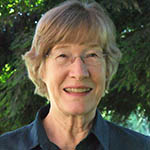 Professor Sara Harkness was interviewed on AirTalk, a public affairs show on NPR in Los Angeles, about mothers across cultures.
Professor Sara Harkness was interviewed on AirTalk, a public affairs show on NPR in Los Angeles, about mothers across cultures.
Faculty
Marlene Schwartz quoted in Newsmax article
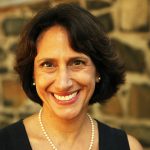 Newsmax quoted Professor Marlene Schwartz in their article “USDA Considers Banning Flavored Milk in Elementary, Middle Schools”. Read the article here.
Newsmax quoted Professor Marlene Schwartz in their article “USDA Considers Banning Flavored Milk in Elementary, Middle Schools”. Read the article here.
Rebecca Puhl quoted in Muscatine Journal
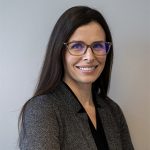 Muscatine Journal quoted Professor Rebecca Puhl in their article “Louisa County approves sliding fee scale for 2024”. Read the article here.
Muscatine Journal quoted Professor Rebecca Puhl in their article “Louisa County approves sliding fee scale for 2024”. Read the article here.
Kim Gans receives grant from US Dept of Health and Human Services
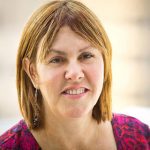 Professor Kim Gans received a five-year, $3 million grant from the US Department of Health and Human Services, Administration For Community Living, Administration on Aging Innovations in Nutrition Programs and Services entitled “Evaluating the impact and sustainability of enhanced home-delivered meal program services on older adults’ health and well-being”. Kim is Co-PI of this grant along with Caitlin Caspi from Allied Health and Meg Grady, Director of Meals on Wheels Rhode Island. The goal of the project is to implement and test the effectiveness of an enhanced Home-Delivered Meals service delivery approach that includes community health worker interactions and supplemental healthy grocery bags to address diet quality, food and nutrition security, loneliness, and health-related quality of life for older adults.
Professor Kim Gans received a five-year, $3 million grant from the US Department of Health and Human Services, Administration For Community Living, Administration on Aging Innovations in Nutrition Programs and Services entitled “Evaluating the impact and sustainability of enhanced home-delivered meal program services on older adults’ health and well-being”. Kim is Co-PI of this grant along with Caitlin Caspi from Allied Health and Meg Grady, Director of Meals on Wheels Rhode Island. The goal of the project is to implement and test the effectiveness of an enhanced Home-Delivered Meals service delivery approach that includes community health worker interactions and supplemental healthy grocery bags to address diet quality, food and nutrition security, loneliness, and health-related quality of life for older adults.
Two studies by Rebecca Puhl cited in KVIA-TV article
 KVIA-TV published a story entitled “Breaking down racial disparities in diabetes prevalence” cited two studies by Professor Rebecca Puhl. Read the story here.
KVIA-TV published a story entitled “Breaking down racial disparities in diabetes prevalence” cited two studies by Professor Rebecca Puhl. Read the story here.
Also, the Society for Human Resource Management published a story entitled “Laws, Policies Can Counter Weight Discrimination at Work” quoting Rebecca.
Marlene Schwartz receives Lectureship in Child Health Award
 Professor Marlene Schwartz was recognized as the 2023 Michael & Susan Dell Center Lectureship in Child Health Award Recipient on Thursday. Her keynote presentation in Houston was titled “The Past, Present, and Future of School Nutrition”.
Professor Marlene Schwartz was recognized as the 2023 Michael & Susan Dell Center Lectureship in Child Health Award Recipient on Thursday. Her keynote presentation in Houston was titled “The Past, Present, and Future of School Nutrition”.
Kim Gans wins Faculty Career Advocate of the Year Award
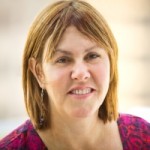 Congratulations to Professor Kim Gans, winner of the Center for Career Development, Career Everywhere Award, as the Colleague-Nominated Faculty Career Advocate of the Year.
Congratulations to Professor Kim Gans, winner of the Center for Career Development, Career Everywhere Award, as the Colleague-Nominated Faculty Career Advocate of the Year.
Exploring Conservation and Sustainability with Preschoolers
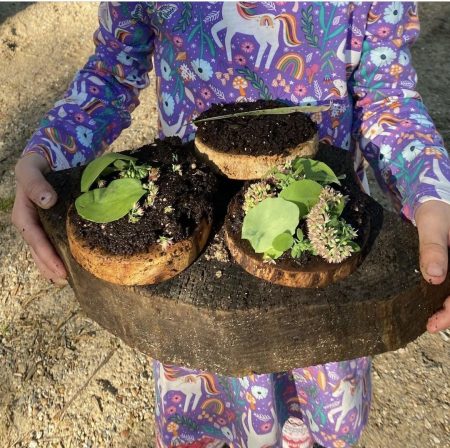 Experiential Learning: Anne Bladen is teaching HDFS 2142E: Exploring Conservation and Sustainability with Preschoolers for the first time this semester in Storrs. The class focuses on developing an ecological identity and how to engage young children in conservation and sustainability projects. Among other assignments, students complete 6 “Nature Immersions,” visit Mirror Lake to discuss Ecological Kinship and explore hands-on activities with different natural materials such as sunflowers, milkweed and pumpkins. 20 students, from a variety of departments and majors, spend 3 hours each week in the preschool classrooms at the Child Labs where they discover that it’s never too early to develop a relationship with nature.
Experiential Learning: Anne Bladen is teaching HDFS 2142E: Exploring Conservation and Sustainability with Preschoolers for the first time this semester in Storrs. The class focuses on developing an ecological identity and how to engage young children in conservation and sustainability projects. Among other assignments, students complete 6 “Nature Immersions,” visit Mirror Lake to discuss Ecological Kinship and explore hands-on activities with different natural materials such as sunflowers, milkweed and pumpkins. 20 students, from a variety of departments and majors, spend 3 hours each week in the preschool classrooms at the Child Labs where they discover that it’s never too early to develop a relationship with nature.
Keith Bellizzi, HDFS Faculty Spotlight, May 2023
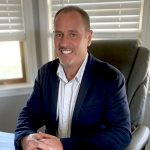 Dr. Keith Bellizzi is trained in gerontology, behavioral medicine, and public health. He has spent the last two decades studying resilience, cancer survivorship, healthy aging, and behavioral change. Prior to joining UConn in 2008, he was a Program Officer and Health Scientist in the Division of Cancer Control and Population Sciences at the National Cancer Institute (NCI) and graduate of the preeminent Cancer Prevention Fellowship Program at the NCI.
Dr. Keith Bellizzi is trained in gerontology, behavioral medicine, and public health. He has spent the last two decades studying resilience, cancer survivorship, healthy aging, and behavioral change. Prior to joining UConn in 2008, he was a Program Officer and Health Scientist in the Division of Cancer Control and Population Sciences at the National Cancer Institute (NCI) and graduate of the preeminent Cancer Prevention Fellowship Program at the NCI.
Motivated by his own personal experience with cancer, Dr. Bellizzi has dedicated his life to improving the lives of individuals with cancer and their families. His current research focuses on 1) mechanisms and outcomes of resilience trajectories in adults with cancer, 2) using electronic health record and patient portal data to create frailty risk profiles to help clinicians make informed treatment decisions for older patients, and 3) examining social determinants of accelerated aging in a diverse population of older adults with cancer. Dr. Bellizzi is Editor of the Cancer and Aging Handbook and Senior Associate Editor of Translational Behavioral Medicine. His research has been continuously funded by the National Institutes of Health and non-profit organizations and has been featured in U.S. News and World Report, The Washington Post, The Los Angeles Times, Australian Financial Review, Psychology Today, and many other media outlets.
Outside of work, Keith spends his time with his three girls, remodeling projects in his house, writing and blogging, mentoring, traveling and making memories with friends, and exploring many of the epic mountain bike trail systems in the U.S and Canada.
Laura Mauldin talks about Long Covid in The Atlantic article
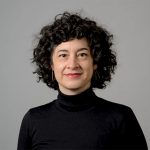 Associate Professor Laura Mauldin was quoted in an article in The Atlantic titled, “Long Covid is Being Erased—Again”. Read the article here.
Associate Professor Laura Mauldin was quoted in an article in The Atlantic titled, “Long Covid is Being Erased—Again”. Read the article here.